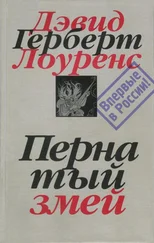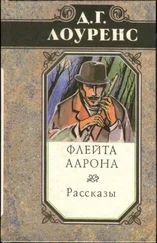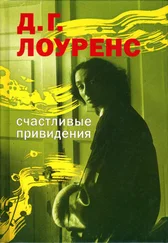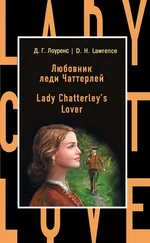Дэвид Лоуренс - Sons and Lovers
Здесь есть возможность читать онлайн «Дэвид Лоуренс - Sons and Lovers» весь текст электронной книги совершенно бесплатно (целиком полную версию без сокращений). В некоторых случаях можно слушать аудио, скачать через торрент в формате fb2 и присутствует краткое содержание. Жанр: Старинная литература, на английском языке. Описание произведения, (предисловие) а так же отзывы посетителей доступны на портале библиотеки ЛибКат.
- Название:Sons and Lovers
- Автор:
- Жанр:
- Год:неизвестен
- ISBN:нет данных
- Рейтинг книги:3 / 5. Голосов: 1
-
Избранное:Добавить в избранное
- Отзывы:
-
Ваша оценка:
- 60
- 1
- 2
- 3
- 4
- 5
Sons and Lovers: краткое содержание, описание и аннотация
Предлагаем к чтению аннотацию, описание, краткое содержание или предисловие (зависит от того, что написал сам автор книги «Sons and Lovers»). Если вы не нашли необходимую информацию о книге — напишите в комментариях, мы постараемся отыскать её.
Sons and Lovers — читать онлайн бесплатно полную книгу (весь текст) целиком
Ниже представлен текст книги, разбитый по страницам. Система сохранения места последней прочитанной страницы, позволяет с удобством читать онлайн бесплатно книгу «Sons and Lovers», без необходимости каждый раз заново искать на чём Вы остановились. Поставьте закладку, и сможете в любой момент перейти на страницу, на которой закончили чтение.
Интервал:
Закладка:
“Well,” he said, “I thought she was warm, and awfully nice—only too frail. I wished she was sitting comfortably in peace—”
“‘Darning her husband’s stockings,’” said Clara scathingly.
“I’m sure she wouldn’t mind darning even my stockings,” he said. “And I’m sure she’d do them well. Just as I wouldn’t mind blacking her boots if she wanted me to.”
But Clara refused to answer this sally of his. He talked to Miriam for a little while. The other woman held aloof.
“Well,” he said, “I think I’ll go and see Edgar. Is he on the land?”
“I believe,” said Miriam, “he’s gone for a load of coal. He should be back directly.”
“Then,” he said, “I’ll go and meet him.”
Miriam dared not propose anything for the three of them. He rose and left them.
On the top road, where the gorse efwas out, he saw Edgar walking lazily beside the mare, who nodded her white-starred forehead as she dragged the clanking load of coal. The young farmer’s face lighted up as he saw his friend. Edgar was good-looking, with dark, warm eyes. His clothes were old and rather disreputable, and he walked with considerable pride.
“Hello!” he said, seeing Paul bareheaded. “Where are you going?”
“Came to meet you. Can’t stand ‘Nevermore.’” 9
Edgar’s teeth flashed in a laugh of amusement.
“Who is ‘Nevermore’?” he asked.
“The lady—Mrs. Dawes—it ought to be Mrs. The Raven that quothed ‘Nevermore.’”
Edgar laughed with glee.
“Don’t you like her?” he asked.
“Not a fat lot,” said Paul. “Why, do you?”
“No!” The answer came with a deep ring of conviction. “No!” Edgar pursed up his lips. “I can’t say she’s much in my line.” He mused a little. Then: “But why do you call her ‘Nevermore’?” he asked.
“Well,” said Paul, “if she looks at a man she says haughtily ‘Nevermore,’ and if she looks at herself in the looking-glass she says disdainfully ‘Nevermore,’ and if she thinks back she says it in disgust, and if she looks forward she says it cynically.”
Edgar considered this speech, failed to make much out of it, and said, laughing:
“You think she’s a man-hater?”
“ She thinks she is,” replied Paul.
“But you don’t think so?”
“No,” replied Paul.
“Wasn’t she nice with you, then?”
“Could you imagine her nice with anybody?” asked the young man.
Edgar laughed. Together they unloaded the coal in the yard. Paul was rather self-conscious, because he knew Clara could see if she looked out of the window. She didn’t look.
On Saturday afternoons the horses were brushed down and groomed. Paul and Edgar worked together, sneezing with the dust that came from the pelts of Jimmy and Flower.
“Do you know a new song to teach me?” said Edgar.
He continued to work all the time. The back of his neck was sun-red when he bent down, and his fingers that held the brush were thick. Paul watched him sometimes.
“‘Mary Morrison’?” egsuggested the younger.
Edgar agreed. He had a good tenor voice, and he loved to learn all the songs his friend could teach him, so that he could sing whilst he was carting. Paul had a very indifferent baritone voice, but a good ear. However, he sang softly, for fear of Clara. Edgar repeated the line in a clear tenor. At times they both broke off to sneeze, and first one, then the other, abused his horse.
Miriam was impatient of men. It took so little to amuse them—even Paul. She thought it anomalous in him that he could be so thoroughly absorbed in a triviality.
It was tea-time when they had finished.
“What song was that?” asked Miriam.
Edgar told her. The conversation turned to singing.
“We have such jolly times,” Miriam said to Clara.
Mrs. Dawes ate her meal in a slow, dignified way. Whenever the men were present she grew distant.
“Do you like singing?” Miriam asked her.
“If it is good,” she said.
Paul, of course, coloured.
“You mean if it is high-class and trained?” he said.
“I think a voice needs training before the singing is anything,” she said.
“You might as well insist on having people’s voices trained before you allowed them to talk,” he replied. “Really, people sing for their own pleasure, as a rule.”
“And it may be for other people’s discomfort.”
“Then the other people should have flaps to their ears,” he replied.
The boys laughed. There was a silence. He flushed deeply, and ate in silence.
After tea, when all the men had gone but Paul, Mrs. Leivers said to Clara:
“And you find life happier now?”
“Infinitely.”
“And you are satisfied?”
“So long as I can be free and independent.”
“And you don’t miss anything in your life?” asked Mrs. Leivers gently.
“I’ve put all that behind me.”
Paul had been feeling uncomfortable during this discourse. He got up.
“You’ll find you’re always tumbling over the things you’ve put behind you,” he said. Then he took his departure to the cow-sheds. He felt he had been witty, and his manly pride was high. He whistled as he went down the brick track.
Miriam came for him a little later to know if he would go with Clara and her for a walk. They set off down to Strelley Mill Farm. As they were going beside the brook, on the Willey Water side, looking through the brake at the edge of the wood, where pink campions glowed under a few sunbeams, they saw, beyond the tree-trunks and the thin hazel bushes, a man leading a great bay horse through the gullies. The big red beast seemed to dance romantically through that dimness of green hazel drift, away there where the air was shadowy, as if it were in the past, among the fading bluebells that might have bloomed for Deirdre or Iseult. 10
The three stood charmed.
“What a treat to be a knight,” he said, “and to have a pavilion ehhere.”
“And to have us shut up safely?” replied Clara.
“Yes,” he answered, “singing with your maids at your broidery. I would carry your banner of white and green and heliotrope. I would have ‘W.S.P.U.’ eiemblazoned on my shield, beneath a woman rampant.”
“I have no doubt,” said Clara, “that you would much rather fight for a woman than let her fight for herself.”
“I would. When she fights for herself she seems like a dog before a looking-glass, gone into a mad fury with its own shadow.”
‘And you are the looking-glass?” she asked, with a curl of the lip.
“Or the shadow,” he replied.
“I am afraid,” she said, “that you are too clever.”
“Well, I leave it to you to be good,” he retorted, laughing. “Be good, sweet maid, and just let me be clever.”
But Clara wearied of his flippancy. Suddenly, looking at her, he saw that the upward lifting of her face was misery and not scorn. His heart grew tender for everybody. He turned and was gentle with Miriam, whom he had neglected till then.
At the wood’s edge they met Limb, a thin, swarthy man of forty, tenant of Strelley Mill, which he ran as a cattle-raising farm. He held the halter of the powerful stallion indifferently, as if he were tired. The three stood to let him pass over the stepping-stones of the first brook. Paul admired that so large an animal should walk on such springy toes, with an endless excess of vigour. Limb pulled up before them.
“Tell your father, Miss Leivers,” he said, in a peculiar piping voice, “that his young beas‘es ’as broke that bottom fence three days an’ runnin’.” ej
“Which?” asked Miriam, tremulous.
The great horse breathed heavily, shifting round its red flanks, and looking suspiciously with its wonderful big eyes upwards from under its lower head and falling mane.
Читать дальшеИнтервал:
Закладка:
Похожие книги на «Sons and Lovers»
Представляем Вашему вниманию похожие книги на «Sons and Lovers» списком для выбора. Мы отобрали схожую по названию и смыслу литературу в надежде предоставить читателям больше вариантов отыскать новые, интересные, ещё непрочитанные произведения.
Обсуждение, отзывы о книге «Sons and Lovers» и просто собственные мнения читателей. Оставьте ваши комментарии, напишите, что Вы думаете о произведении, его смысле или главных героях. Укажите что конкретно понравилось, а что нет, и почему Вы так считаете.









